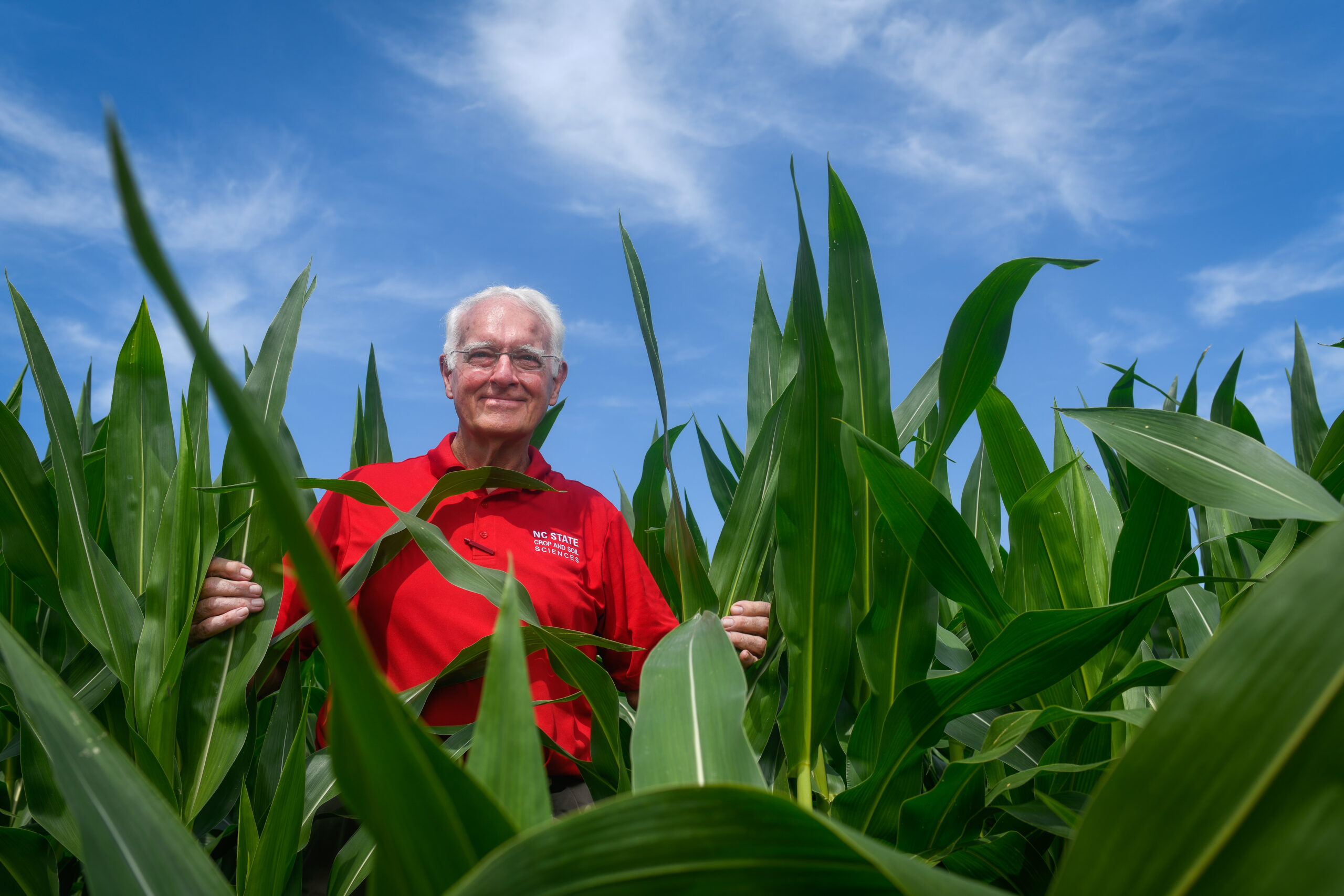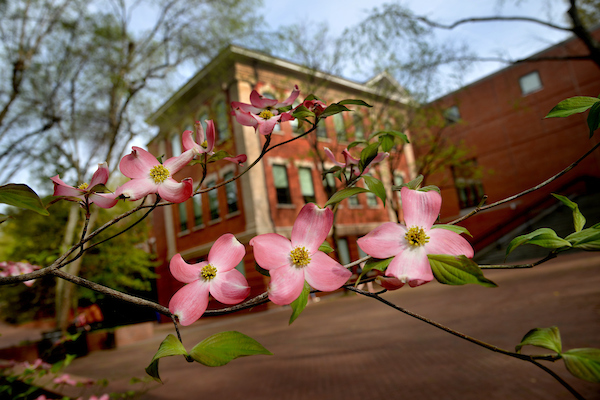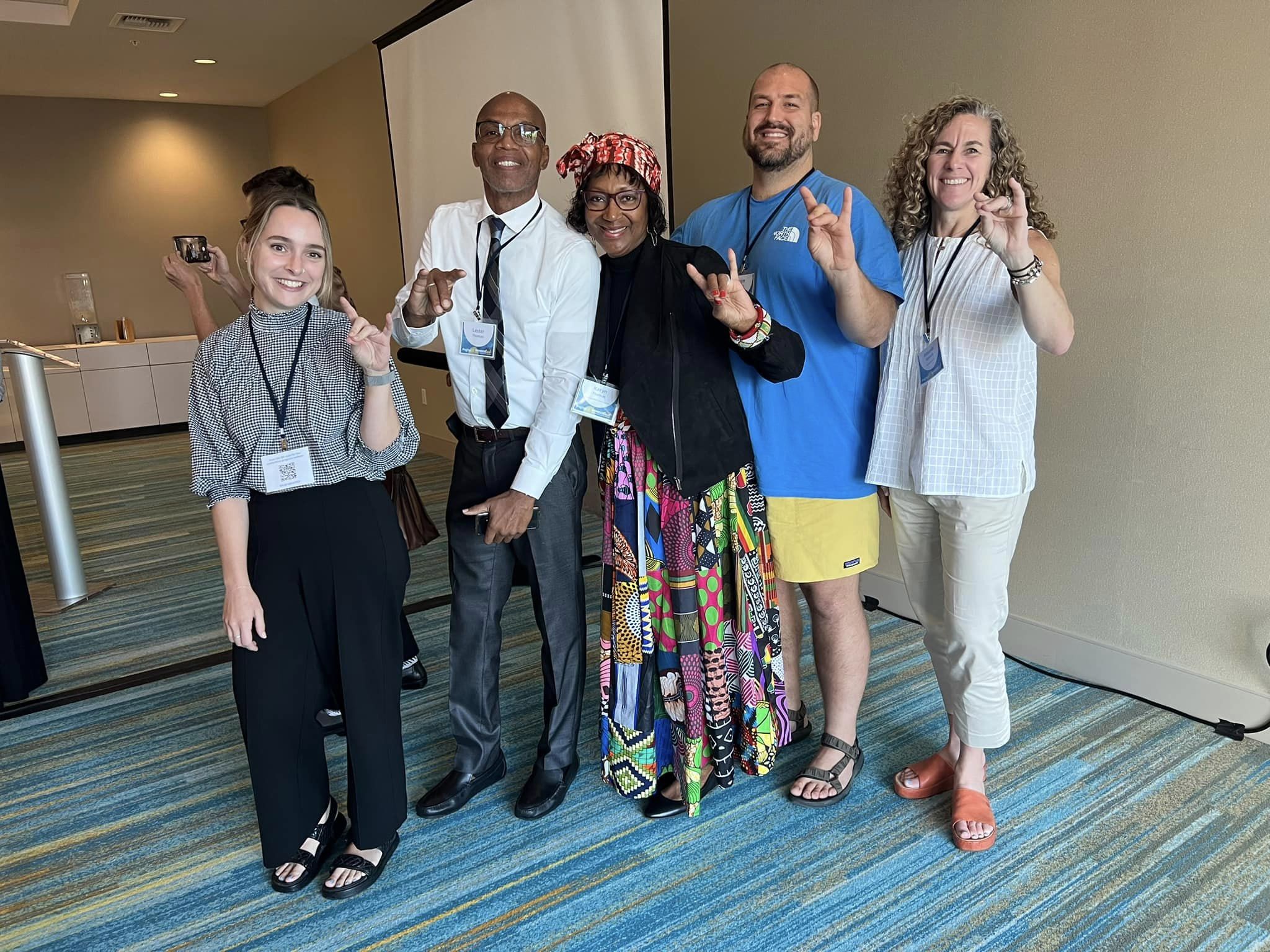MALS Faculty Spotlight: Bob Patterson
Nurturing Interdisciplinary Inquiry for a Sustainable Future

Dr. Bob Patterson, a distinguished faculty member in the Crop Science Department at NC State University, has dedicated his career to exploring the intricate relationship between genetics, environment, and sustainable crop production. With a rich academic background spanning agronomy, soil science, and plant physiology, Dr. Patterson brings a wealth of knowledge and expertise to his teaching and research endeavors.
Since joining NC State in 1968, Dr. Patterson has been instrumental in shaping the academic landscape, particularly within the MALS program. His journey in interdisciplinary education began in 1972 when he started teaching UNI 323, eventually evolving into STS 323 and MLS 501—a course he has taught every year since the inception of the MALS program in 1989. Dr. Patterson’s commitment to interdisciplinary teaching reflects his belief in the power of collaboration and holistic thinking to address complex global challenges.
Driven by a passion for understanding the genetics-environment interaction, Dr. Patterson’s research focuses on soybean water relations, aiming to provide a physiological basis for drought tolerance in soybean crops. His work is rooted in a deep-seated desire to contribute to global food security and sustainability, particularly in less-developed regions where water scarcity poses significant challenges to agricultural productivity.
For Dr. Patterson, the heart of interdisciplinary education lies in nurturing curiosity and encouraging students to delve deeper into the “why” behind the subject matter. He views interdisciplinarity as essential for addressing pressing global issues such as poverty and hunger, emphasizing the importance of individuals from diverse disciplines coming together to find innovative solutions.
Dr. Patterson’s dedication to his students extends beyond the classroom, as he strives to empower them to make informed decisions that will shape the future of our planet. His guiding philosophy emphasizes the primacy of questions over answers and the importance of understanding the trajectory of one’s actions—a sentiment encapsulated in his poignant advice to “know where the train is going before you get on.”
In Dr. Bob Patterson, the MALS program and NC State University have a steadfast advocate for interdisciplinary inquiry and a visionary leader committed to fostering a sustainable future through education and collaboration.
What is your academic and/or professional background?
B.S. in Agronomy and Soil Science/NCSU (1961); M.S. in Soil Science & Plant Physiology/NCSU (1963). Ph.D. in Agronomy, Biochemistry, and Inorganic Chemistry/Cornell (1968). I started in Crop Science Dept. at NCSU in 1968; became CHASS Adjunct in 1972 when I started teaching UNI 323 –> MDS 323 –> STS 323, and every year since.
Tell us about your current research and academic pursuits. What guides your research? Any recent or upcoming projects you’d like to share?
Teaching Introductory Crop Science (CS 213/CS 214); World Population and Food Prospects (STS 323) and also Exploratory Studies version (STS 323Q); Global Sustainable Human Development (MLS 501). Participating in soybean water relations research, with the goal of providing a physiological basis for soybean drought tolerance, because of the lack of sufficient water for healthy plant growth/development (both yield and quality of grain) in many of the less-developed parts of our world.
When/why did you become interested in your area of study?
My undergraduate academic and student-work experiences motivated me to want to learn all possible about the genetics-by-environment interaction, for benefit of my understanding how to provide a healthy, sustainable crop growing environment for our food, feed, fiber, and specialty crop needs globally.
What courses have you taught or are you teaching for MALS? How did they come about, and how do they tie in with your interests?
I began teaching MLS 501 in 1989, the year the MALS program came into existence, with Dr. Chuck Korte as the first Director, and I have taught MLS 501 every year since, because I appreciated so fully Dr. Korte asking me to teach a graduate version of STS 323. We could not have had a better initial Director than Dr. Korte – so fully dedicated to always making the right decisions for benefit of all the students and faculty/ staff involved in the MALS program.
How would you characterize your experience with the MALS program and with MALS students?
Truly splendid in every respect!! Our MALS students have a truly wonderful natural curiosity–interested more in the “why” than in just the “what!!” Thankfully!!
What attracts you about interdisciplinary teaching and research? In a broader sense, how do you understand the nature and importance of interdisciplinarity?
Interdisciplinarity is vitally important for our planet to be able to address poverty and hunger responsibly/effectively. Individuals of various disciplines working together (with and not for…) provide opportunity for all participants to move forward in their respective areas of specialization in most responsible and satisfying ways. Walking the journey together–effectively–(i.e., addressing the global poverty-hunger cycle in responsible ways) requires full/complete interdisciplinarity.
Beyond your academic work, what’s something that you feel would be important for us to get to know you as a person?
Hopefully my colleagues realize that my greatest academic goal is to help our students–and all others with whom I interact–address their respective academic and extra-curricular interests in ways that empower them to feel most comfortable about the decisions they are having to make constantly, decisions that are going to impact all of us–everywhere… I try to help our students realize that the questions are ever more important than the answers… And that “Before you get on that train, students, be sure you know where it is going…”


